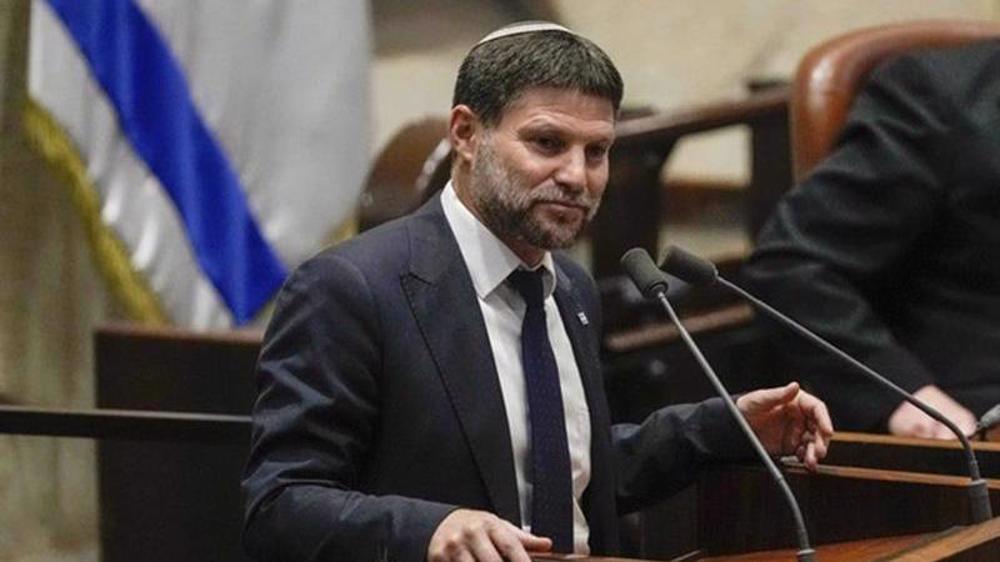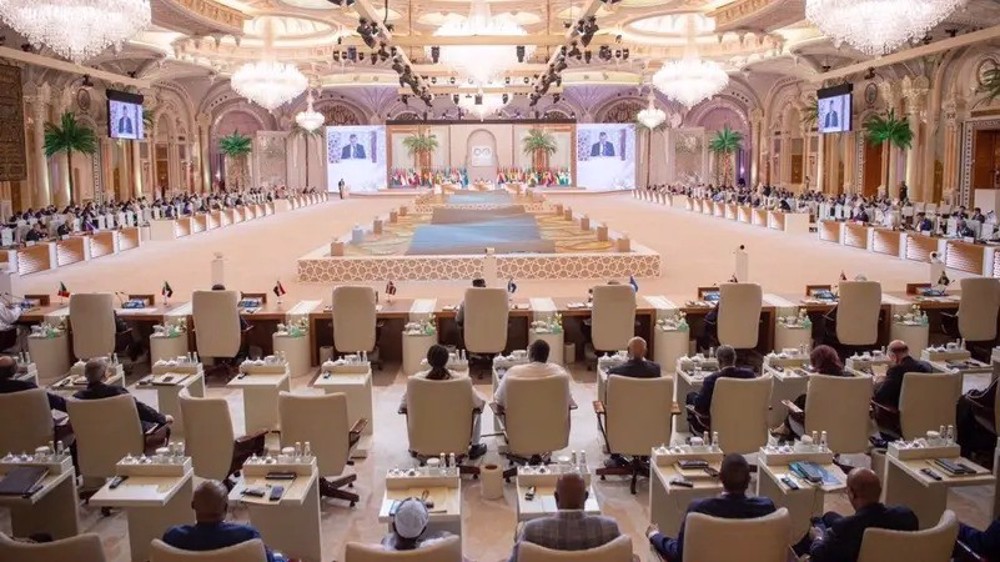Yemenis kill 20 Saudi troops as Rioyadh's deadly war enters 5th year
Yemeni fighters say they have killed at least 20 Saudi Arabian soldiers in a retaliatory attack as the Riyadh regime’s deadly war against the impoverished southern neighbor enters its fifth year.
Spokesman for Yemeni armed forces Brigadier General Yahya Saree announced late Sunday that the attack by the Yemeni army and Popular Committees targeted two military bases in the southern Saudi town of Jizan.
The attack, carried out after extensive intelligence gathering, injured a greater number of Saudi soldiers and destroyed at least five armored vehicles, Saree said.
The general noted that the Saudi military had yet to collect the dead bodies of its troops despite enjoying close air support.
In the capital Sana'a, thousands of Yemeni people gathered outside the United Nations office earlier in the day to demand an end to Saudi Arabia’s military aggression, which has killed a large number of civilians and destroyed the country’s infrastructure.
Riyadh, under the order of its de-facto ruler Crown Prince Mohammed bin Salman, began indiscriminately pounding targets across Yemen on March 24, 2015.
The ambitious prince, who was the kingdom’s defense minister back then, infamously predicted that the campaign would only take a few months to fulfill its two main targets: Destroying the Houthi Ansarullah movement and reinstating fugitive former president Abd Rabbuh Mansur Hadi – a staunch ally.
Four years on, however, the Saudis and their allies in the war --- including the United Arab Emirates and Bahrain-- and their many thousands of foreign mercenaries have become bogged down.
Houthis and their allies, on the other hand, remain steadfast in their resolve to fight off the enemy with a powerful arsenal of missiles that have struck as far as the Saudi capital.
Read More:
The situation inside Yemen, however, remains grim as millions of people remain in the throes of acute starvation and deadly diseases such as cholera and diphtheria.
A Saudi-led blockade and its constant destruction of Yemen's infrastructure has shrunk Yemen's economy by 50 percent since the onset of the conflict.
The war has also forced more than two-thirds of small- and medium-size businesses to lay off half of their employees and driven up the price of food by 112 percent.
According to a report by the Armed Conflict Location and Event Data Project (ACLED), a nonprofit conflict-research organization, the Saudi war has claimed the lives of around 56,000 Yemenis.
A new report by Save the Children says the ongoing Saudi aggression has killed at least 2,500 Yemeni children since March 2015. That means the Saudi military is killing Yemeni children at a horrifying rate of over 30 children per month.
In one operation alone, Saudi warplanes used US-supplied bombs to target a school bus in the northern Yemeni town of Sa’ada, killing 40 children onboard.
Amnesty condemns 'horrific crimes'
Amnesty International said in a statement on Monday that the international community needs to take swift action to stop the “bloodshed” in Yemen.
“After four years of bloodshed in the Arab world’s poorest country, Yemenis can no longer bear the catastrophic humanitarian impact of the war," said Samah Hadid, Amnesty International’s Middle East campaigns director.
“The international community must step up efforts to ensure that civilians are protected, obstacles to humanitarian assistance and arbitrary restrictions on import of essential goods are lifted, and impunity for war crimes and other violations is ended,” Hadid added.
She called on the US, the UK and other Western countries that have been supplying Riyadh with advanced weapons despite international outrage to halt their military dealings with the kingdom.
“Western states must immediately halt the arms trade to warring parties. They must put human rights and the lives of millions of Yemeni civilians and their own legal obligations above lucrative arms sales,” said Hadid.
US President Donald Trump scored a $110 billion weapons deal with Saudi Arabia during his visit to Riyadh in 2017.
The UK has licensed over £4.7 billion worth of arms exports, including missiles and fighter jets, to Riyadh since the deadly conflict began in 2015. Prime Minister Theresa May has so far faced down calls for a ban on the weapons sales despite the growing humanitarian disaster.
France has also been a major supplier of weapons to Saudi Arabia. French Defense Minister Florence Parly said last year that her country had exported 11 billion euros ($12.6 billion) in arms to Saudi Arabia between 2008 to 2017, a figure which was crucial for French jobs.
Germany, Spain, Australia, Greece and many other countries are also involved in arms trade with Riyadh.
US House passes bill targeting charities and pro-Palestine groups
Hezbollah attacks Israeli forces after Lebanese homes blown up
World leaders, states hail ICC arrest warrants for Netanyahu, Gallant
MP: US accountable for possible Israeli 'foolishness' to attack Iraq
VIDEO | Israeli policies strangle Palestinian agriculture, economy
Iran's president offers condolences to Pakistan over terrorist attack
Canada’s Yukon town council at standstill over refusing oath to King Charles
Yemen's Houthi calls for jihad to protect Palestine against Israel













 This makes it easy to access the Press TV website
This makes it easy to access the Press TV website